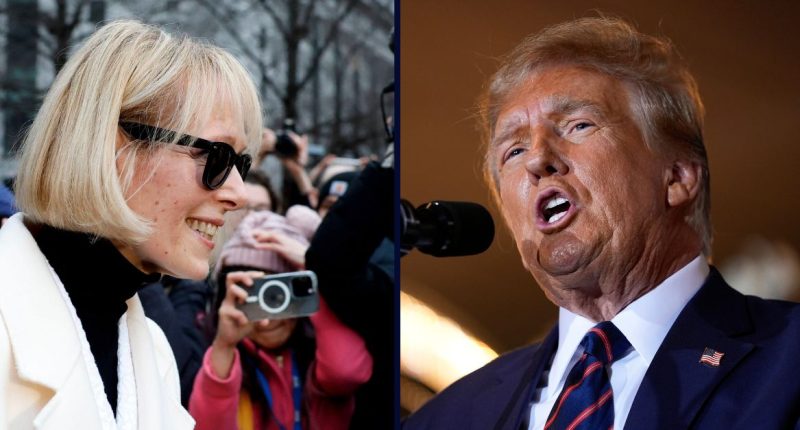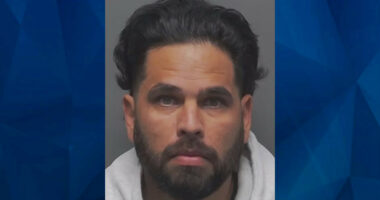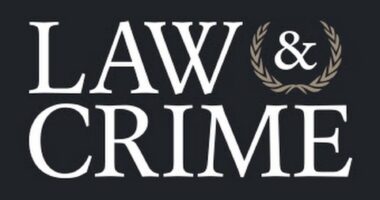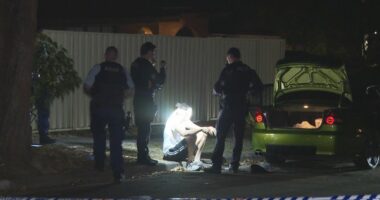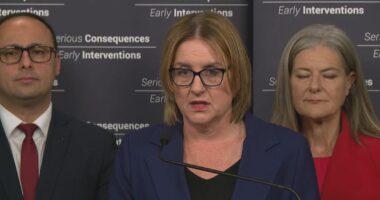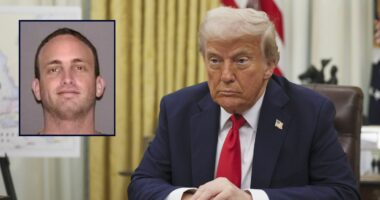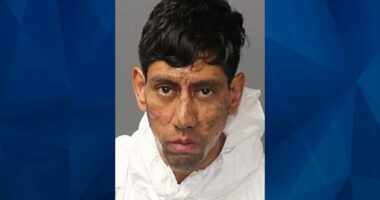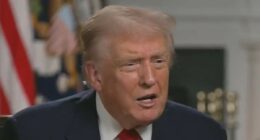Share this @internewscast.com
Left: Journalist E. Jean Carroll departs from the courthouse after the damages trial against Donald Trump concluded at Manhattan Federal Court on Friday, January 26, 2024, in New York City (John Angelillo, Alamy Live News via AP). Right: Republican former President Donald Trump addresses supporters at a primary election night event in Nashua, N.H., Jan. 23, 2024. (AP Photo/Matt Rourke).
Two federal appellate judges who were appointed by Donald Trump during his first term took a stand for the former president on Friday, criticizing the 2nd U.S. Circuit Court of Appeals for declining to grant a rehearing en banc in one of the E. Jean Carroll cases.
U.S. Circuit Judges Steven Menashi and Michael Park were the sole dissenting voices among their peers, arguing strongly that certain evidentiary decisions made by Senior U.S. District Judge Lewis Kaplan were so flawed that the 2nd Circuit should revisit the president’s appeal.
In late December, a three-judge panel on the 2nd Circuit left alone a civil jury’s 2023 verdict that Trump was liable for sexually abusing Carroll in the 1990s and liable for defaming her when calling the allegations a “hoax” decades later while president.
In this particular case, Carroll was awarded $5 million in damages. In the other, also a defamation case that the president is actively appealing, Trump remains on the hook for $83 million.
Love true crime? Sign up for our newsletter, The Law&Crime Docket, to get the latest real-life crime stories delivered right to your inbox.
Trump’s lawyers have long argued that the jury verdict was “unjust and erroneous” and based on “flawed and prejudicial evidentiary rulings.”
Menashi, who penned the dissent and was joined by Park, plainly agreed Friday that evidentiary issues were troubling, for evidence the trial judge either did or didn’t allow in.
“The panel opinion embraced a series of anomalous holdings to affirm the judgment of the district court. This is a defamation case involving public figures, but the district court excluded evidence of the defendant’s contemporaneous state of mind, ensuring that the plaintiff easily met the actual malice standard,” the dissent began.
“The panel opinion neglected to justify that exclusion,” Menashi added. “But it upheld the admission of propensity evidence on the dubious theory that evidence of prior acts of sexual assault could ‘prove the actus reus,’ meaning whether the defendant acted in accordance with the propensity on a later occasion.”
Beyond this, Menashi continued, the district judge wrongly allowed in testimony “about prior acts that were neither crimes nor sexual assaults,” and then didn’t allow Trump to explore whether Carroll’s allegations and lawsuits were politically motivated — and financially backed by Democrats.
“At trial, Trump sought to introduce evidence and to question Carroll about facts that could lead a reasonable observer to believe that the lawsuit was fabricated to advance a political agenda,” Menashi wrote, saying that if the evidence had been permitted Trump would have had a better chance of defeating the defamation claim.
“This evidence makes it more likely that President Trump believed that the lawsuit had been concocted by his political opposition — and therefore that he was not speaking with actual malice when he called it a hoax,” said the dissent.
Toward the end of the dissent, Menashi stated that the trial “consisted of a series of indefensible evidentiary rulings” and led to a verdict “based on impermissible character evidence and few reliable facts.”
“No one can have any confidence that the jury would have returned the same verdict if the normal rules of evidence had been applied,” he concluded.
Carroll lawyer Roberta Kaplan reportedly reacted to the denial by saying her client is “very pleased with today’s decision.”
“Although President Trump continues to try every possible maneuver to challenge the findings of two separate juries, those efforts have failed,” Kaplan reportedly told ABC News. “He remains liable for sexual assault and defamation.”
Another possible maneuver for the Trump team to exhaust would be petitioning the U.S. Supreme Court to take up the case, and early indications suggest that will happen.
